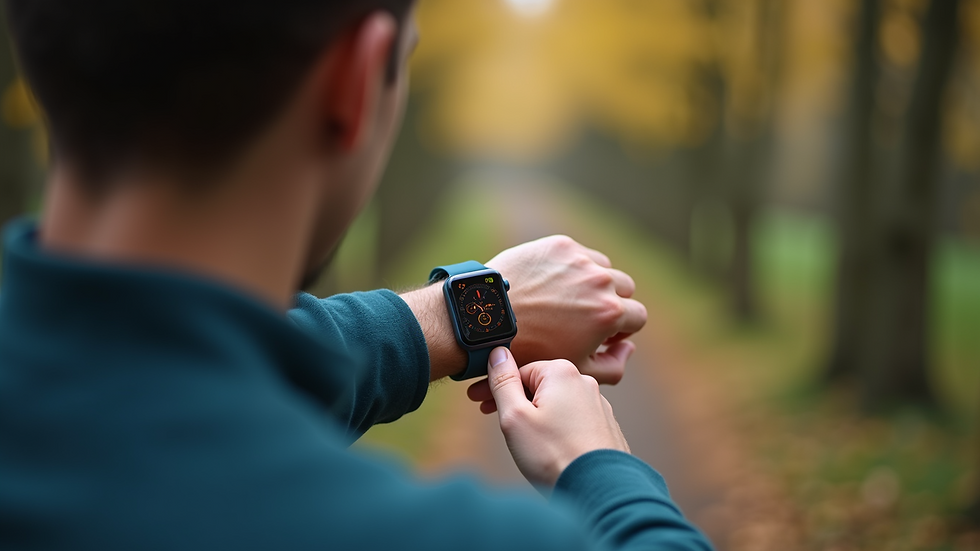Essential Tools to Strengthen Your Mindfulness Practice
- Katrina Koleto

- Aug 22, 2025
- 4 min read
Mindfulness is more than just a buzzword - it is a powerful practice that helps cultivate awareness, reduce stress, and improve overall well-being. However, developing a consistent mindfulness routine can be challenging without the right support. Fortunately, there are many tools available that can enhance your mindfulness journey and make it more accessible and effective. This article explores essential tools that can help you deepen your mindfulness practice and integrate it into your daily life.
Exploring Effective Mindfulness Tools for Daily Practice
To build a strong mindfulness habit, having the right resources is key. These tools provide guidance, structure, and motivation, making it easier to stay committed and reap the benefits. Here are some of the most popular and practical mindfulness tools you can use:
Guided Meditation Apps: Apps like Headspace, Calm, and Insight Timer offer a wide range of guided meditations for different levels and goals. They provide audio instructions that help you focus and relax, making meditation approachable for beginners and seasoned practitioners alike.
Mindfulness Journals: Writing down your thoughts, feelings, and experiences can deepen your self-awareness. Mindfulness journals often include prompts that encourage reflection on the present moment, gratitude, and emotional patterns.
Breathing Exercises: Simple breathing techniques such as box breathing or 4-7-8 breathing can be practiced anywhere to quickly reduce anxiety and center your mind.
Mindfulness Bells or Timers: These tools remind you to pause and check in with yourself throughout the day. A gentle chime or bell can bring your attention back to the present moment.
Books and Online Courses: Reading books by mindfulness experts or enrolling in online courses can provide valuable insights and structured learning paths.
Using a combination of these tools can create a supportive environment for your mindfulness practice. For those interested in exploring a curated selection of mindfulness tools, this resource offers excellent options to get started.

How Technology Enhances Mindfulness Practice
Technology has transformed how we approach mindfulness. While mindfulness is about being present and unplugged, technology can serve as a helpful guide and motivator. Here’s how:
Accessibility: Meditation apps and online platforms make mindfulness practices available anytime and anywhere. This flexibility helps you fit mindfulness into a busy schedule.
Customization: Many apps allow you to choose meditation lengths, themes, and voices, tailoring the experience to your preferences.
Tracking Progress: Some tools track your meditation streaks, mood changes, and breathing patterns, providing feedback that encourages consistency.
Community Support: Online forums and social media groups connected to mindfulness apps create a sense of community, where you can share experiences and tips.
Reminders and Notifications: Gentle nudges remind you to pause and practice mindfulness, helping to build a daily habit.
While technology is a valuable aid, it’s important to balance screen time with offline mindfulness activities like mindful walking or journaling.

What are the 5 C's of Mindfulness?
Understanding the 5 C's of mindfulness can provide a framework to deepen your practice. These principles help cultivate a mindful attitude and guide your interactions with thoughts and emotions:
Curiosity - Approach your experiences with an open and inquisitive mind. Instead of judging, explore what you notice in the present moment.
Compassion - Treat yourself with kindness and understanding, especially when facing difficulties or negative emotions.
Commitment - Dedicate yourself to regular mindfulness practice, recognizing that consistency builds strength over time.
Confidence - Trust in your ability to be mindful and handle whatever arises during your practice.
Calmness - Develop a sense of inner peace and tranquility through mindful awareness.
By integrating these 5 C's into your mindfulness routine, you create a supportive mindset that encourages growth and resilience.

Practical Tips to Incorporate Mindfulness Tools into Your Routine
Starting a mindfulness practice can feel overwhelming, but small, consistent steps make a big difference. Here are actionable recommendations to help you integrate mindfulness tools effectively:
Start Small: Begin with just 5 minutes of guided meditation or breathing exercises daily. Gradually increase the time as you feel comfortable.
Set Reminders: Use mindfulness bells or app notifications to prompt you to pause and breathe during the day.
Create a Dedicated Space: Designate a quiet, comfortable spot for your mindfulness practice to signal your brain that it’s time to focus.
Combine Tools: Pair journaling with meditation or use breathing exercises before sleep to enhance relaxation.
Be Patient: Mindfulness is a skill that develops over time. Celebrate small victories and be gentle with yourself on challenging days.
Explore Different Tools: Experiment with various apps, books, or courses to find what resonates best with you.
By making mindfulness a regular part of your lifestyle, you can experience improved focus, emotional balance, and overall well-being.
Building a Sustainable Mindfulness Practice for Long-Term Benefits
Mindfulness is not a quick fix but a lifelong journey. To sustain your practice and enjoy lasting benefits, consider these strategies:
Integrate Mindfulness into Daily Activities: Practice mindful eating, walking, or even washing dishes by fully engaging your senses and attention.
Join Mindfulness Groups or Classes: Connecting with others can provide motivation and deepen your understanding.
Reflect on Your Progress: Use a mindfulness journal to track changes in your mood, stress levels, and awareness.
Adapt Your Practice: Life changes, and so can your mindfulness routine. Be flexible and open to trying new tools or techniques.
Prioritize Self-Care: Mindfulness complements other self-care practices like exercise, healthy eating, and adequate sleep.
By nurturing your mindfulness practice with intention and care, you create a foundation for greater peace and resilience in everyday life.
Mindfulness is a powerful tool for enhancing mental clarity and emotional well-being. With the right support and resources, anyone can develop a meaningful practice. Explore different mindfulness tools, stay curious, and commit to your journey - the benefits are well worth the effort.







Comments